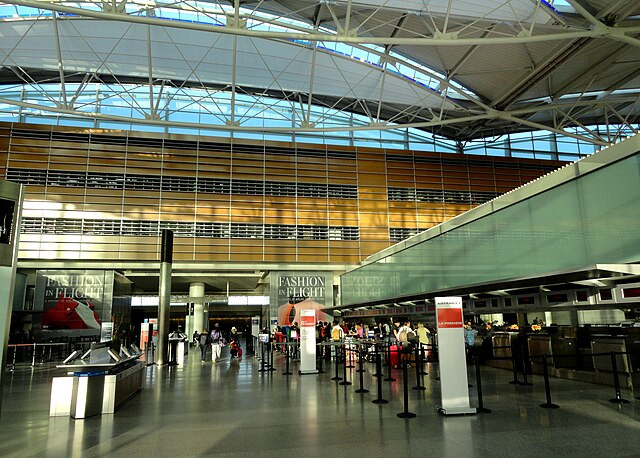A California bill targeting the airport security screening company CLEAR has passed its first legislative hurdle, sparking a heated debate over the fairness and equity of expedited security services at airports. The proposal, which was approved by the state Senate Transportation Committee with an 8-4 vote on Tuesday, aims to restrict CLEAR's expansion to new airports until the company obtains its own dedicated security lane.
CLEAR, a publicly-traded security company, offers members the ability to skip security lines at airports, sports events, concerts, and other venues for an annual fee of $189. Members can verify their identity at an airport kiosk using biometric data, such as a face scan or fingerprint, without having to show their ID to a Transportation Security Administration (TSA) agent. Once a traveler's identity has been verified, a CLEAR employee escorts them directly to the front of the TSA security line.
However, this line-skipping privilege has created frustration and a sense of unfairness among some travelers who don't have access to or can't afford the cost of a CLEAR membership. "When it comes to making one's way through airport security, the quality of that experience shouldn't be contingent on a traveler's income or willingness to pay," said Sen. Josh Newman, the Democrat who introduced the bill.
Newman also pointed out that travelers who are not enrolled in CLEAR are "subject to the indignity of being shunted aside to make way for those who do," calling the practice "inequitable, especially in light of the fact that it's their tax dollars which fund airport security services in the first place."
The bill, which appears to be the first of its kind in the United States, initially sought to prohibit CLEAR and other third-party screening services from operating at California airports altogether. However, after facing steep industry opposition, the measure was watered down to restrict CLEAR's expansion until the company secures its own dedicated security lane.
CLEAR currently offers expedited service at nine airports in California, with approximately 10% of the state's travelers being CLEAR members, according to a legislative analysis of the bill. The company has created hundreds of jobs in the state, serves nearly 1 million California residents, and has contributed more than $13 million in revenue to state airports through leasing space.
The bill has garnered support from labor unions representing flight attendants and TSA agents, while major airlines, the California Airports Council, and various business interests have lined up against it. Sen. Bill Dodd, a Democrat from Napa, accused the bill's supporters of "fear-mongering on safety issues" and expressed annoyance at the state's attempt to intervene in the relationship between TSA and CLEAR.






